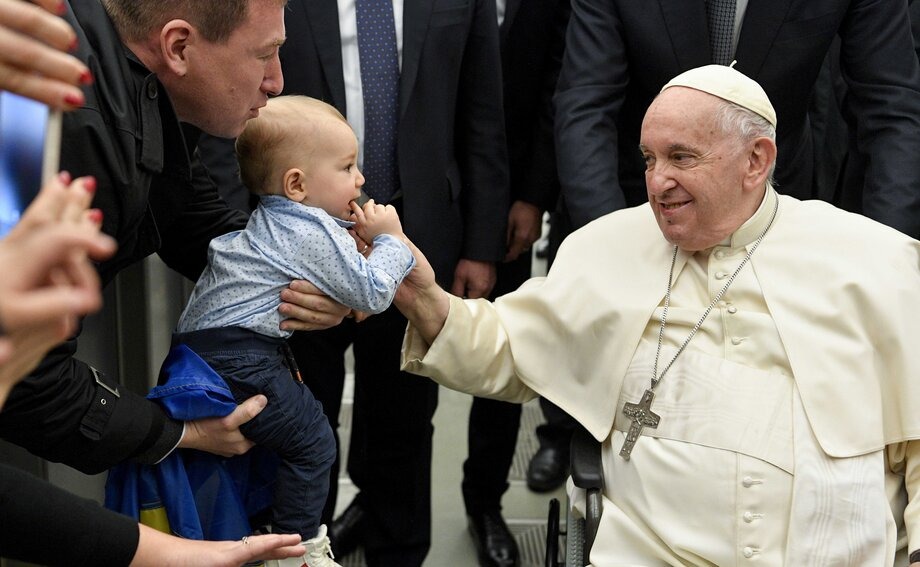Pope Francis began his general audience by congratulating the faithful gathered in the Paul VI Hall on Christmas. At the beginning he mentioned that "this liturgical season invites us to pause and reflect on the mystery of Christmas and, since today marks the fourth centenary of the death of St. Francis de SalesBishop and Doctor of the Church, we can draw inspiration from some of his thoughts".
Because of this remembrance of the saint, the Pope announced that today "an apostolic letter commemorating this anniversary is being published. The title is Everything belongs to loveto use an expression characteristic of the holy bishop of Geneva".
Following the Doctor of the Church, Francis wanted to "deepen the mystery of the Birth of Jesus in the company of St. Francis de Sales".
Taking into account the writings of the Bishop of Geneva, the Holy Father began by analyzing the element of the manger where Jesus was born. "The Evangelist Luke, in recounting the birth of Jesus, insists much on the detail of the manger. This means that it is very important, not only as a logistical detail, but as a symbolic element for understanding what kind of Messiah is the one born in Bethlehem, what kind of King, who Jesus is."
"Looking at the manger, looking at the cross, looking at his life of simplicity, we can understand who Jesus is. Jesus is the Son of God who saves us, becoming man like us. Stripping himself of his glory and humbling himself. We see this mystery concretely in the central point of the manger, that is, in the Child".
This humble detail of the manger brings us closer to God's way of acting. Thus, Francis says: "Let us never forget it. God's way is closeness, compassion and tenderness".
The consequence of this style of the Father implies that "God does not take us by force, he does not impose his truth and justice on us, he does not proselytize us. He wants to attract us with love, with tenderness, with compassion".
For all this, Francis affirms that "God has found the means to attract us, whoever we are, with love. Not a possessive and selfish love".
God's love "is pure gift and pure grace. It is all and only for us, for our good. This is how he attracts us, with this unarmed and even disarming love. But when we see this simplicity of Jesus, we also throw out all our weapons, our pride".
Continuing with the analysis of the birth of Christ, Francis considers that "another aspect that stands out in the Nativity Scene is poverty". This is not an exclusively material poverty, but, says the Pope, it must be "understood as the renunciation of all worldly vanity".
Knowing this mystery of poverty allows us to better understand the meaning of the authentic Christmas. The Pope warns that there is a Christmas that is "the worldly caricature that reduces it to a kitschy and consumerist celebration. It is necessary to celebrate, but this is not Christmas. Christmas is something else. God's love is not sweet. The manger of Jesus shows it to us. God's love is not a hypocritical goodness that hides the search for pleasures and comforts".
Inspired by a letter written by St. Francis de Sales before his death, the Pope concludes by saying that "there is a great teaching that comes to us from the Child Jesus through the wisdom of St. Francis de Sales. To desire nothing and reject nothing, to accept everything that God sends us. But be careful. Always, and only, for love. Because God loves us and wants always, and only, our good".








